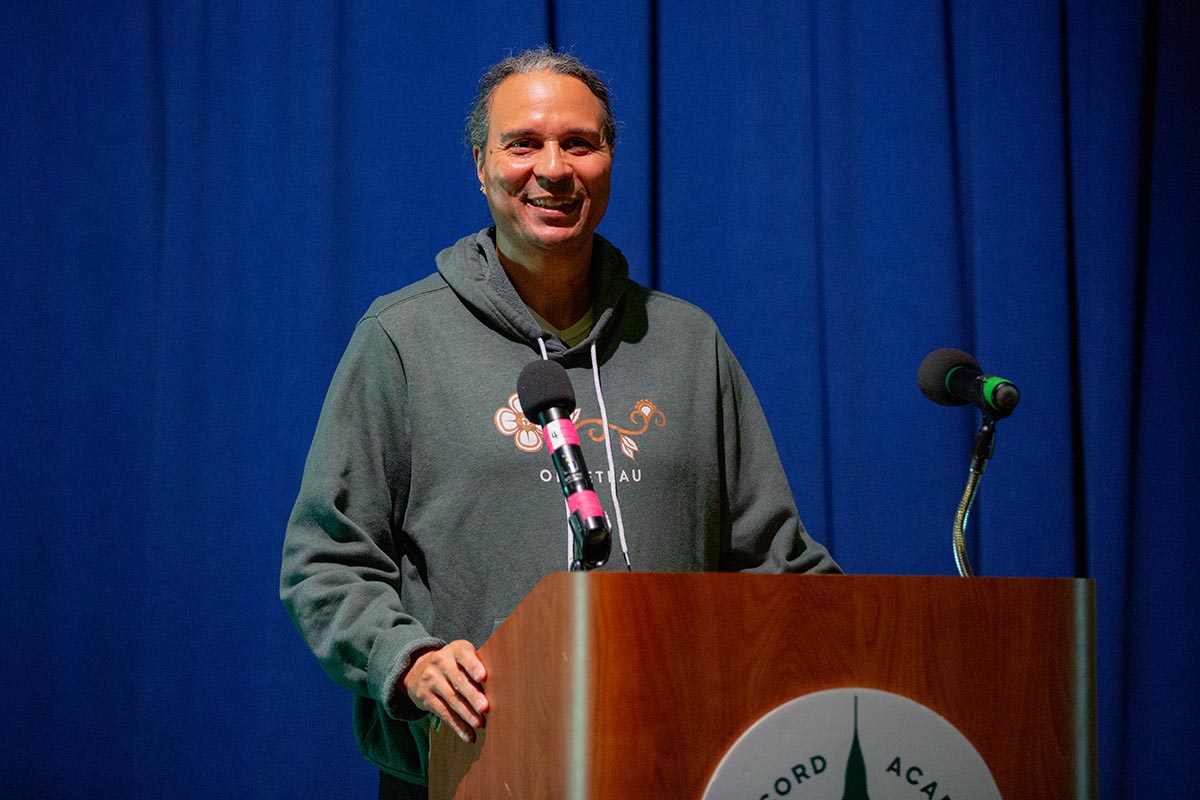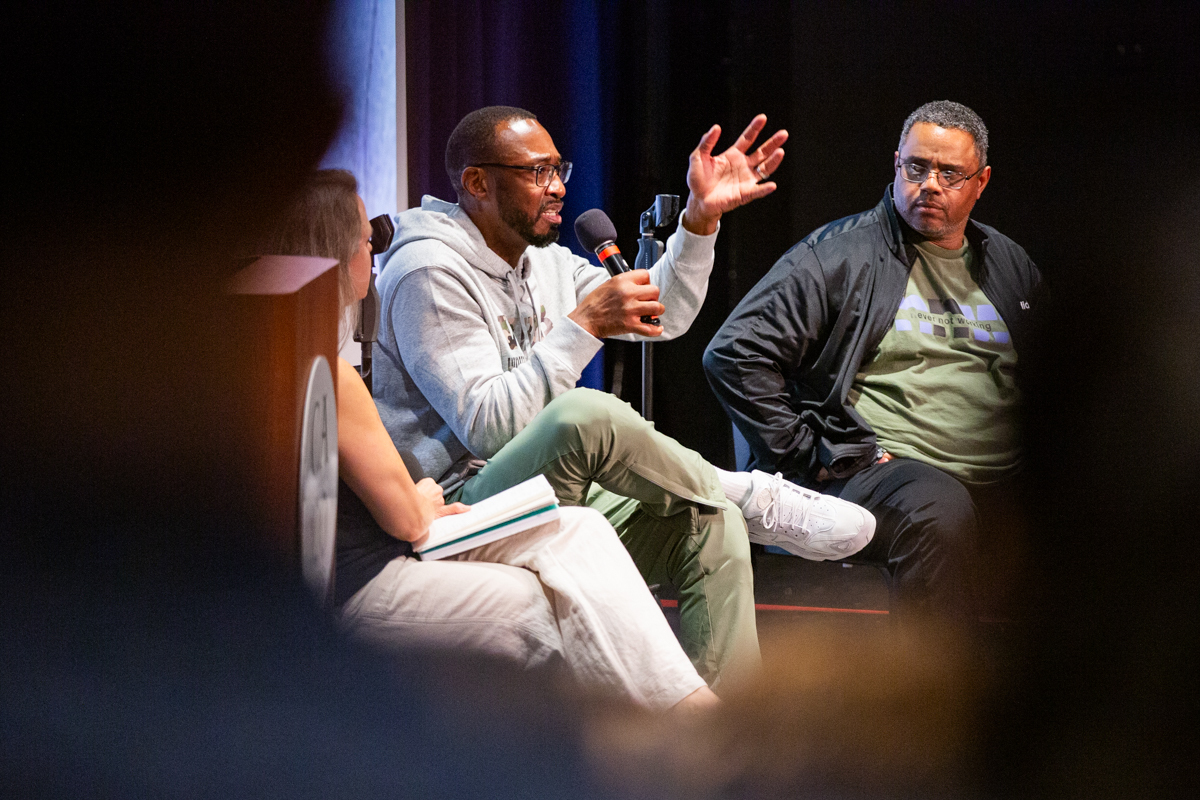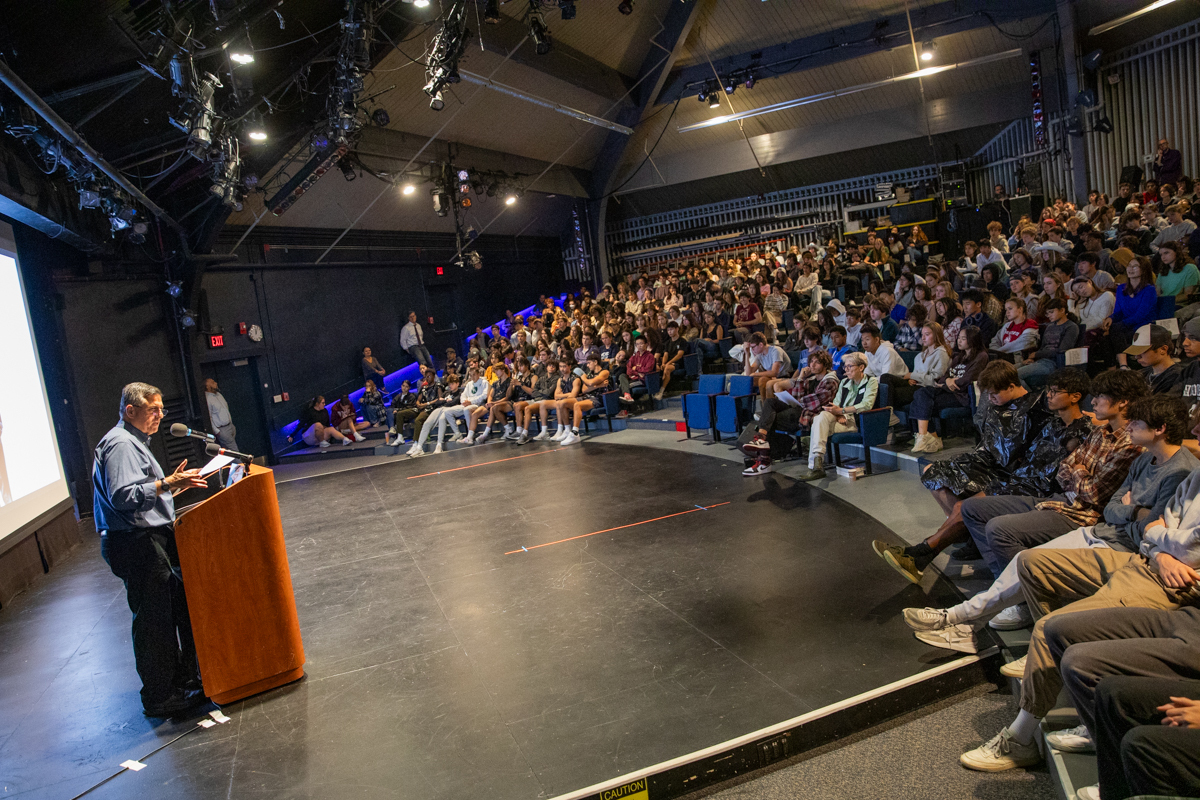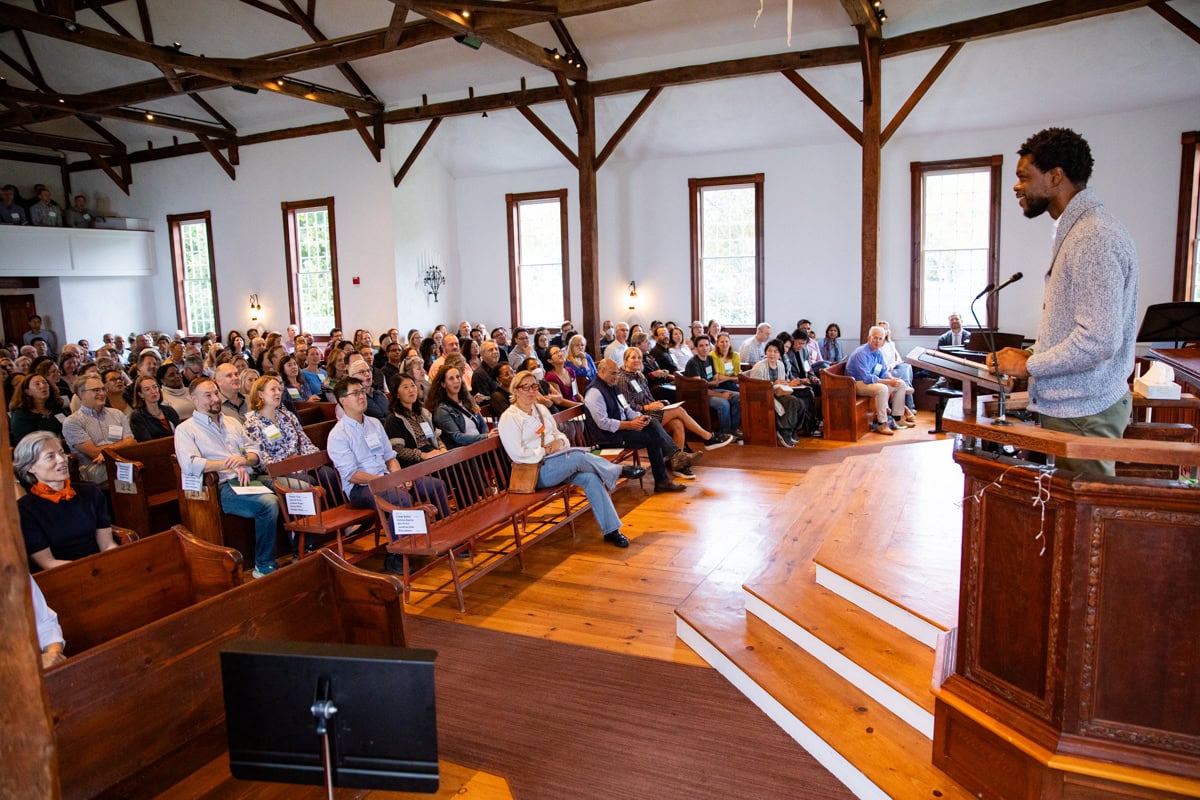Community and Equity Assembly Brings Larry Spotted Crow Mann Back to CA

While parents and guardians attended Family Weekend classes on Friday, October 7, CA students engaged in Community and Equity Programming in honor of Indigenous Peoples Day. Concord Academy welcomed back acclaimed author, storyteller, and educator Larry Spotted Crow Mann to share his music and culture. A citizen of the Nipmuc Tribe of Massachusetts, Mann spoke with students about the history of the attempted eradication of native culture and peoples in the United States as well as recently created organizations—such as the Ohketeau Cultural Center, which he co-directs—that are creating opportunities for healing.
Mann gave a brief and sobering historical account of how thousands of years of “pre-contact” ways of life and intellectual exchange were interrupted by disease, genocide, war, and forced removal—a history that largely hasn’t been taught in American schools. The dominant culture represented the abuses that indigenous families suffered as justified by a wish to “civilize” them; in reality, children were separated from their parents and siblings and sent to boarding schools that stripped them of their culture, language, and heritage. “None of this is abstract for Native American people,” Mann said. “Every Native person alive today has had three generations taken away.”
Demonstrating what he called the “ecology of language,” Mann offered words of peace and reciprocity in his traditional tongue. He addressed the importance of land acknowledgements to people whose indigenous identities have long been denied. In just the past couple of years, the Boston Marathon began including a land acknowledgement in its opening song, and Mann’s own junior high school, where he had suffered abuse and bullying, had consulted with him about a similar statement to honor the Nipmuc people. Having traveled from school to school for more than 30 years, Mann shared what a transformative time it was to be presenting about truth and reconciliation. In 2021, Ohketeau, the first indigenous-owned and -operated center in all of Central and Western Massachusetts was established, and Mann also received the first Indigenous Peoples Award from the NAACP in Massachusetts in recognition of his life’s work to promote social justice and share the culture and music of his people.
“The world is changing,” Mann said. “It’s an exciting time.”
He pointed the way to healing through storytelling and sharing traditional techniques, such as are now being taught at the Nipmuc Farm School, on 180 acres in Orange, Mass. Mann also addressed the question of allyship, acknowledging that all have been harmed by the devaluing of the people who have been here for thousands of years. “How do we all heal?” he asked. That process starts, he suggested, by acknowledging the history, and the intergenerational trauma that endures.
“I’m proud of you for listening to this,” Mann said. “What you do with this information next is up to you, but you have the power to shift the social consciousness of justice. If you look at history, anything that’s changed for the better did not come from Washington, did not come from legislation,” he said. “It came from individual citizens who started a movement.” Mann pointed to a nascent movement that has already seen the return of 300 acres of land to the Nipmuc people—led not by the state but by individual landowners and towns in Massachusetts.
After Mann’s presentation, students had an opportunity to ask questions. They then watched a significant portion of Dawnland, a documentary film about the abuses indigenous families experienced at the hands of child welfare agencies and the first truth and reconciliation process that has addressed them in the United States, which took place in Maine in 2012.


